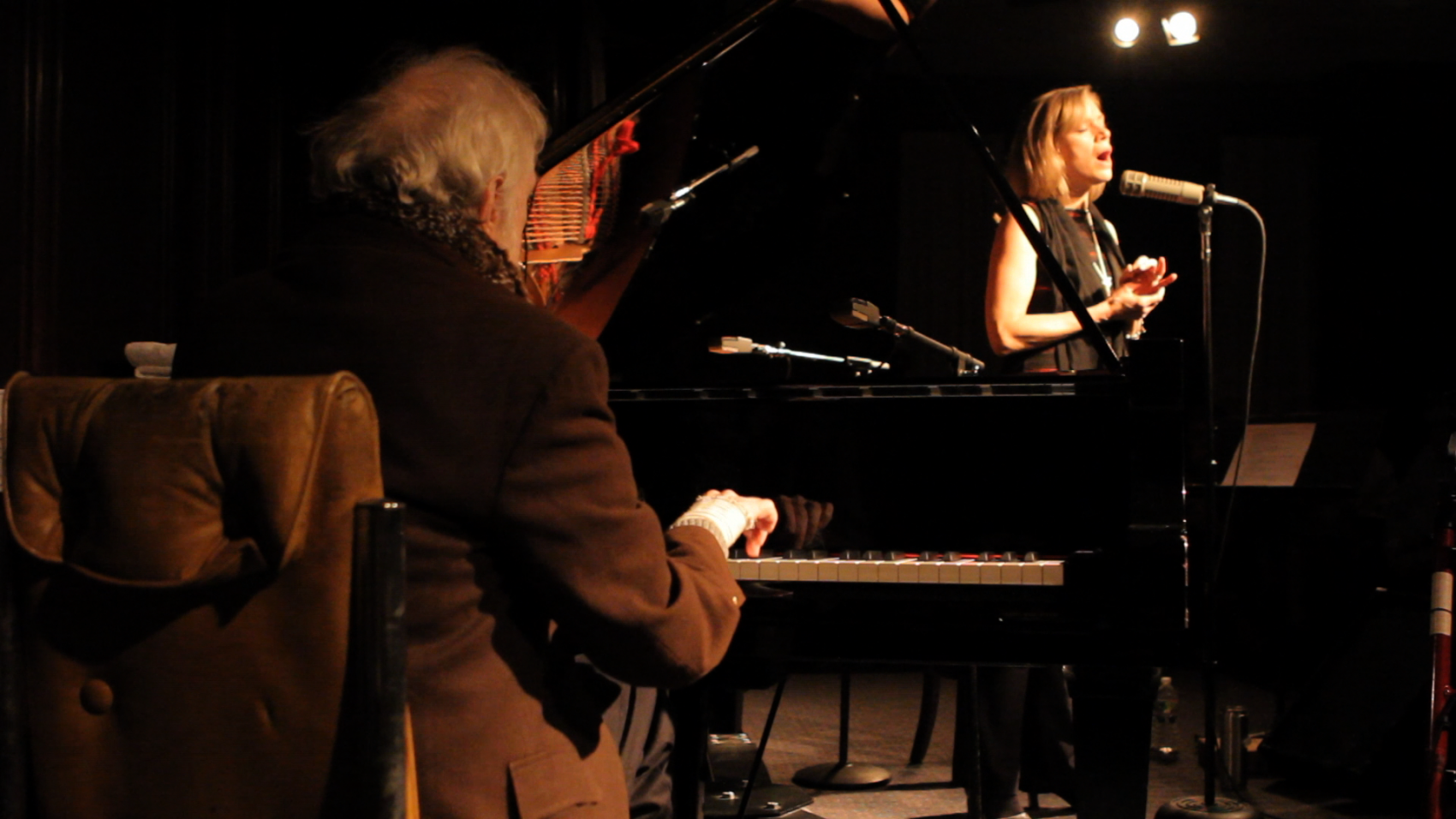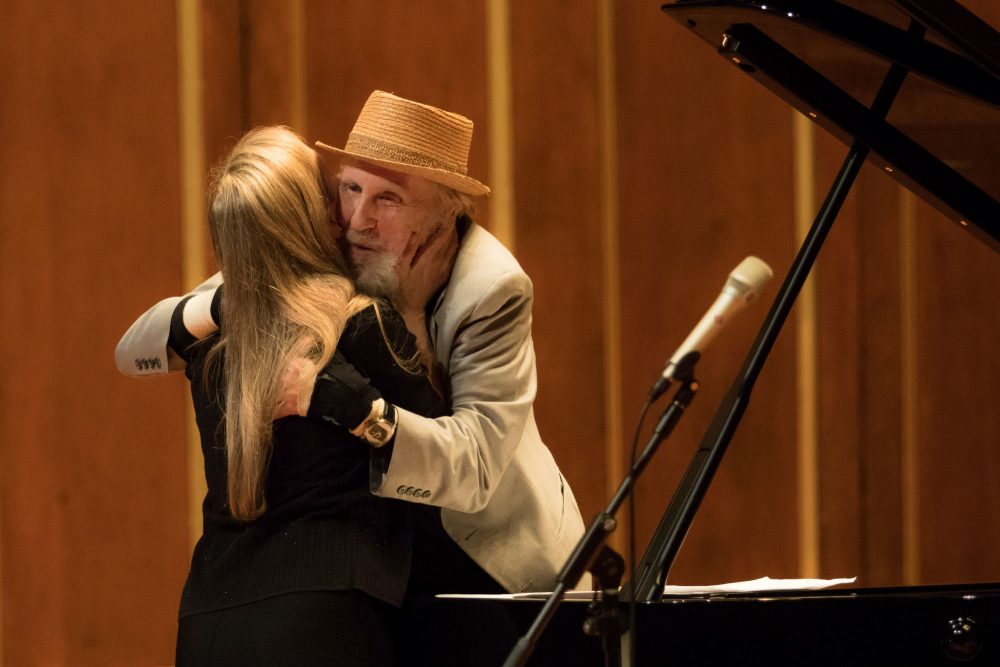Advertisement
Jazz Artists Ran Blake And Dominique Eade Explore Tenderness, And Darkness, Of American Folk Traditions

The lights are out in New England Conservatory’s Jordan Hall. A clear voice with a southern lilt reaches into the darkness singing: “He was tall, he was slender, and his dark eyes so tender. His occupation was mining, West Virginia his home.” The final phrase is disrupted by cacophonous and staccato piano voicings, spaced out by tense pauses.
“It has the ghosts of the past,” pianist Ran Blake said of the hall where he and vocalist Dominique Eade — both NEC instructors — recorded their new album “Town and Country.”
The new project is a modern exploration of the American folk traditions touching on gospel, country, the Great American Songbook and traditional folk music with selections from Bob Dylan, Mahalia Jackson and Charles Ives. It’s a departure for Blake, who founded the avant-garde and free-improvising Third Stream department at NEC, as well as for Eade, a teacher and well-known jazz singer. The hall, though, has been a home for their music many times before.
"It certainly affected the mood," said Eade, even if casual listeners might not realize the album was recorded there. Listening to the album, the music communicates the nostalgia and eeriness that was present in the process.
The carefully curated vision and message emerged organically, they said. Blake created playlists, or what he calls “aural cocktails,” as they watched movies from film noir, a genre of crime movies from the 1940s and ‘50s that have been a major influence on Blake’s playing.
“We were doing things [musically] that were new to both of us,” Eade said, adding that they spent a lot of time trading ideas about repertoire.
The final product is 18 tracks, mostly under three minutes long and spaced closely together, that form a series of vignettes touching on vastly different musical styles with an atmospheric congruency. Eade’s signature rhythmic elasticity and clear, bell-like tone are present on the album, but she also tries on vocal styles associated with each selection. She doesn’t try to turn Mahalia Jackson’s “Elijah Rock” or Johnny Cash’s “Give My Love to Rose” into jazz, but rather adds a slight twang, makes her voice more nasal or robust or inserts a gospel riff where appropriate.

“I didn’t feel I could sing them well without really understanding the original artists,” Eade said. “It’s more of an emotional connection than strictly a technical one — I think I could have sung the country more country and the gospel more gospel but I was more interested in the emotional message as it came through the musical delivery of each artist. I felt like I had to take the genres as far as I needed to to get out of them emotionally and musically what was important."
While Eade is experimenting with more traditional forms of expression, Blake is focused on texture and dramatics. “Sometimes there’s a hint of the beat," he said, "but it’s not my main concern” and “I’m not doing many linear lines.”
It’s difficult to talk with Blake about what he is focusing on musically because listening to him, one experiences fluctuations in intensity and pressure rather than concrete musical concepts. A soft stirring of the piano’s lower register, harmonically and rhythmically off balance and slightly sinister, builds tension in the beginning accompaniment for “Moonlight in Vermont.” Blake then definitively strikes a high register cluster chord as Eade sings the word “hypnotized.” The chord unravels as intermingling chords and phrases freely cascade down to a silence.
Although Blake and Eade respect the traditional roles of voice as lead and piano as accompaniment, they describe themselves as “equal partners” and Eade says she tries to follow Blake just as much as he’s following her: “The sound of what he plays is so incredible that you have to be on your toes to stay with it, you can’t just go through with your ideas about the song. There’s a vulnerability in that.”
I asked Eade how their distinct approaches coexist. “It’s like we’re two different boats but the surface tension of the water is the same. ... If my vessel is rocking a slightly different way than his, we’re still very mindful of the connection between us, the common denominator. When you sing with Ran and you lose that, you know it right away. It takes a strong listening and empathic sensibility.”
Blake and Eade will be officially releasing “Town and Country” at Thelonious Monkfish in Cambridge on Saturday, July 22. It will be interesting to hear Eade and Blake elaborate on the strong conceptual framework they established in the recording. With this project, Eade and Blake's personal history intertwines with the legacy of American music. The result, Eade hopes, is "darkness, but also hopefulness and tenderness."